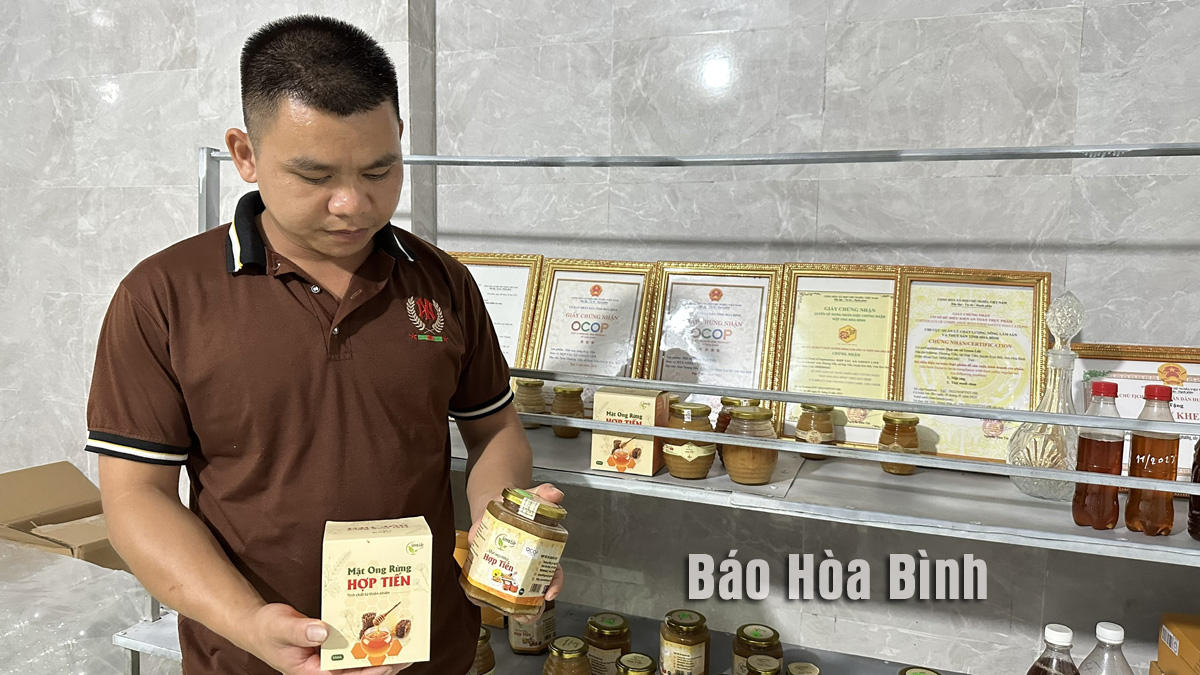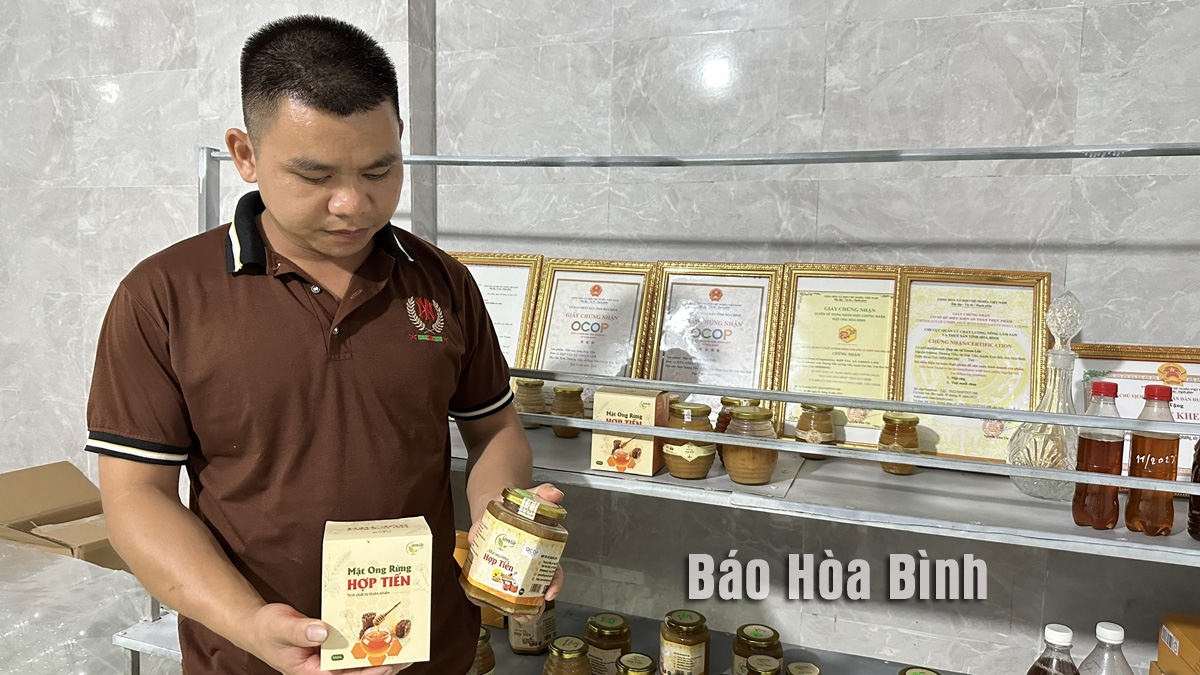
Hop Tien commune’s wild honey product is one of the two first 4-star One Commune – One Product (OCOP) items of Kim Boi district.

Hop Tien wild honey products are produced by Green
Life cooperative, Hop Tien commune, Kim Boi district. The products meets
VietGAP standards, ISO 22000: 2018.
From the 1960s, the locals have used honey in their
daily lives, however, until 2000, beekeeping for honey has become a trade,
helping households improve their incomes.
Dinh Cong Thuan, Director of Greeen Life cooperative,
shared that local honey beekeeping has created jobs for many labourers,
especially young people. Currently, Hop Tien wild honey products are available
across the country and in April, 2024 the products were marketed in the
Republic of Korea (RoK).
Hop Tien commune is located in Thuong Tien Nature
Reserve, coveringmore than 5,000 ha of special-use forest with many
precious medicinal plants. The area is considered an ideal place for honey
beekeeping development. Currently, Green Life cooperative has 11 members and
satellite beekeeping households in hamlets, such as Thuong Tien, Luon, Vang,
and Sim Trong. With nearly 5,800 colonies of bees, Hop Tien wild honey is
well-known for its special and unique flavour and sweetness.
Currently, honey production is 60,000 litres a year, bringing a total income of
more than 12 billion VND (472,000 USD) a year for the cooperative. The
cooperative has invested in machinery systems to help improve production,
ensuring food safety and hygiene. The cooperative’s wild honey products also
meet requirements on exports to the European market.
Bui Thanh Thu, Vice Chairman of the Hop Tien Commune
People's Committee, said that local authorities hope Green Life cooperative to
continue to improve production, aiming to restructure the agricultural sector
in association with new rural buildingin the locality while strengthening
the promotion and introduction of products at trade fairs, supermarkets as well
as both domestic and foreign markets.
According to data from the Hoa Binh Provincial Party Committee, the industrial production index for the first six months of 2025 is estimated to have increased by 20% compared to the same period last year. This marks the highest year-on-year growth rate for this period since 2020.
In the first six months of 2025, Hoa Binh province’s export turnover was estimated at 1.145 billion USD, marking an 18.11% increase compared to the same period in 2024. Import turnover was estimated at $ 804 million, a 17.15% increase, which helped the province maintain a positive trade balance.
The lives of the ethnic minority farmers in Tan Lac district have gradually improved thanks to the new directions in agricultural production. This is a testament to the collective strength fostered through the professional associations and groups implemented by various levels of the district’s Farmers’ Union.
With the motto the "product quality comes first,” after nearly one year of establishment and operation, Muong village’s Clean Food Agricultural and Commercial Cooperative, located in Cau Hamlet, Hung Son Commune (Kim Boi district), has launched reputable, high-quality agricultural products to the market that are well-received by consumers. The products such as Muong village’s pork sausage, salt-cured chicken, and salt-cured pork hocks have gradually carved out a place in the market and they are on the path to obtaining the OCOP certification.
In the past, the phrase "bumper harvest, rock-bottom prices" was a familiar refrain for Vietnamese farmers engaged in fragmented, small-scale agriculture. But today, a new spirit is emerging across rural areas of Hoa Binh province - one of collaboration, organisation, and collective economic models that provide a stable foundation for production.
Maintaining growing area codes and packing facility codes in accordance with regulations is a mandatory requirement for agricultural products to be eligible for export. Recently, the Department of Agriculture and Environment of Hoa Binh province has intensified technical supervision of designated farming areas and packing facilities to safeguard the "green passport" that enables its products to access international markets.



